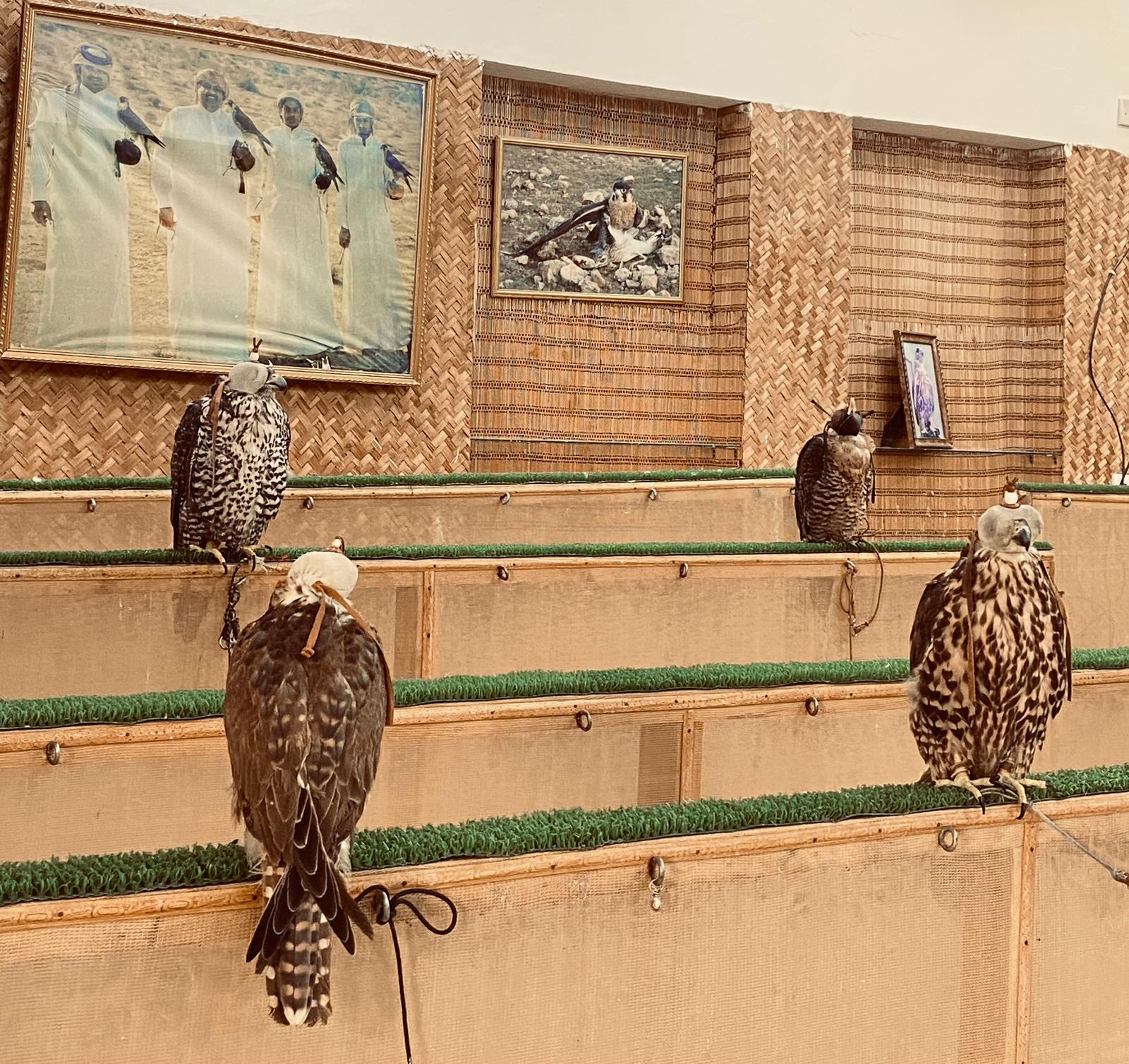Falcons, with their hooked beaks, sharp vision, and strong talons, are esteemed as an essential part of Qatar’s heritage and honored as the nation’s national bird.
In the heart of the Arabian Peninsula Qatar, falconry is not just a sport, it is a way of life.
Around 5000 years ago, falconry began its flight through the sands of the Arabian Peninsula, establishing itself as a revered tradition among the Bedouin tribes.
The Bedouin tribes, who roamed the arid landscapes of Qatar and beyond, adapted to the harsh environment through herding sheep and goats, managing temporary camps, and serving as caravan guides and traders across distant regions.
Yet, among their many skills and traditions, falconry stood out as a a special symbol of power, pride, and endurance.
For the Bedouins, falcons were more than mere hunting tools; they represented a high status and were integral to the tribal identity.
The art of falconry became a tradition passed down through generations, with each tribe perfecting their techniques and rituals to maintain this ancient practice.
In 2010, Qatar took a significant step to preserve this cherished practice by inscribing falconry on UNESCO’s Intangible Cultural Heritage list.
Today, the legacy of falconry continues to thrive in Souq Waqif, one of Qatar’s most important and bustling traditional markets.
According to historians in Qatar, the Souq dates back about 250 years and earned its name, “Waqif” (which means “standing” in Arabic), because vendors used to stand at the market entrances to display their goods, such as spices, fish, clothes, and wood.

The Falcon Souq, nestled within Souq Waqif, is a vibrant and unique marketplace dedicated to the ancient art of falconry.
This specialised section of the Souq, which opened in 2001, is a focal point for enthusiasts, traders, and falconers.
Walid Sattam, a falcon expert, stated, “Walking through the Falcon Souq, you’re not just seeing a market; you’re stepping into a living museum where every bird and every store tells a story of our ancestors’ passion.” He added, “When you look into a falcon’s eyes, you’re gazing into the soul of a thousand-year-old legacy.”
Most of the falcons at the Souq are imported from countries such as Iran, Spain, and Pakistan.
The Souq features an array of traditional and modern stores where vendors present a wide range of falcons, from the majestic Peregrine to the hardy Gyrfalcon.

Walid Sattam noted, “The Peregrine Falcon is the fastest bird in the world, capable of reaching speeds over 320 km/h. Its impressive lineage and strong health make it a true marvel. I invested in this bird not just for its speed but for its status as the pinnacle of falconry.”
He added, “The price of a Peregrine Falcon can reach up to 500,000 riyals.”
Sattam’s store, like many other specialized shops, offers a diverse selection of equipment that used in falconry.
From finely crafted falconry hoods and durable jesses to advanced telemetry systems and modern training aids, the store caters to both traditional and contemporary needs.
The range includes essential items such as perches, baths, and feeding stations for mews, all designed to ensure optimal care and training for falcons.

Nevertheless, falconry comes with its own set of challenges.
Research indicates that peregrine falcons can live between 12 to 15 years. However, only 6 out of every 10 fledglings survive past their first year.
Falcons face a range of threats including predation, severe weather, and malnutrition. Additionally, they are at risk of injury during training or racing, which can further impact their health and performance.
In light of these challenges, Qatar established the Souq Waqif Falcon Hospital in 2008, conveniently located next to the Falcon Souq.

This unique hospital, with its specialized facilities and expert staff, treats avian health issues and also advances research and education to improve survival rates and quality of life for these majestic birds.
Just as the Falcon Souq and the Falcon Hospital preserve Qatar’s heritage from the practical angles, the Hunting & Falconry Stamps Exhibition in Katara extends this preservation to a broader, cultural scale.
At the Arab Postage Stamps Museum in Katara Cultural Village, visitors can explore a unique collection of stamps that highlight the rich history of falconry in the Arabian Peninsula.
The exhibit features local and international stamps that highlight the tradition and artistry of falconry, depicting scenes of falcons in flight, hunters, and traditional gear.
This rich heritage, cherished by Qatar for thousands of years, will continue to be a cornerstone of the nation’s identity.
Many falcon experts at the Souq showed strong dedication to preserving this art, alongside institutions like the Arab Postage Stamps Museum and the Souq Waqif Falcon Hospital.







